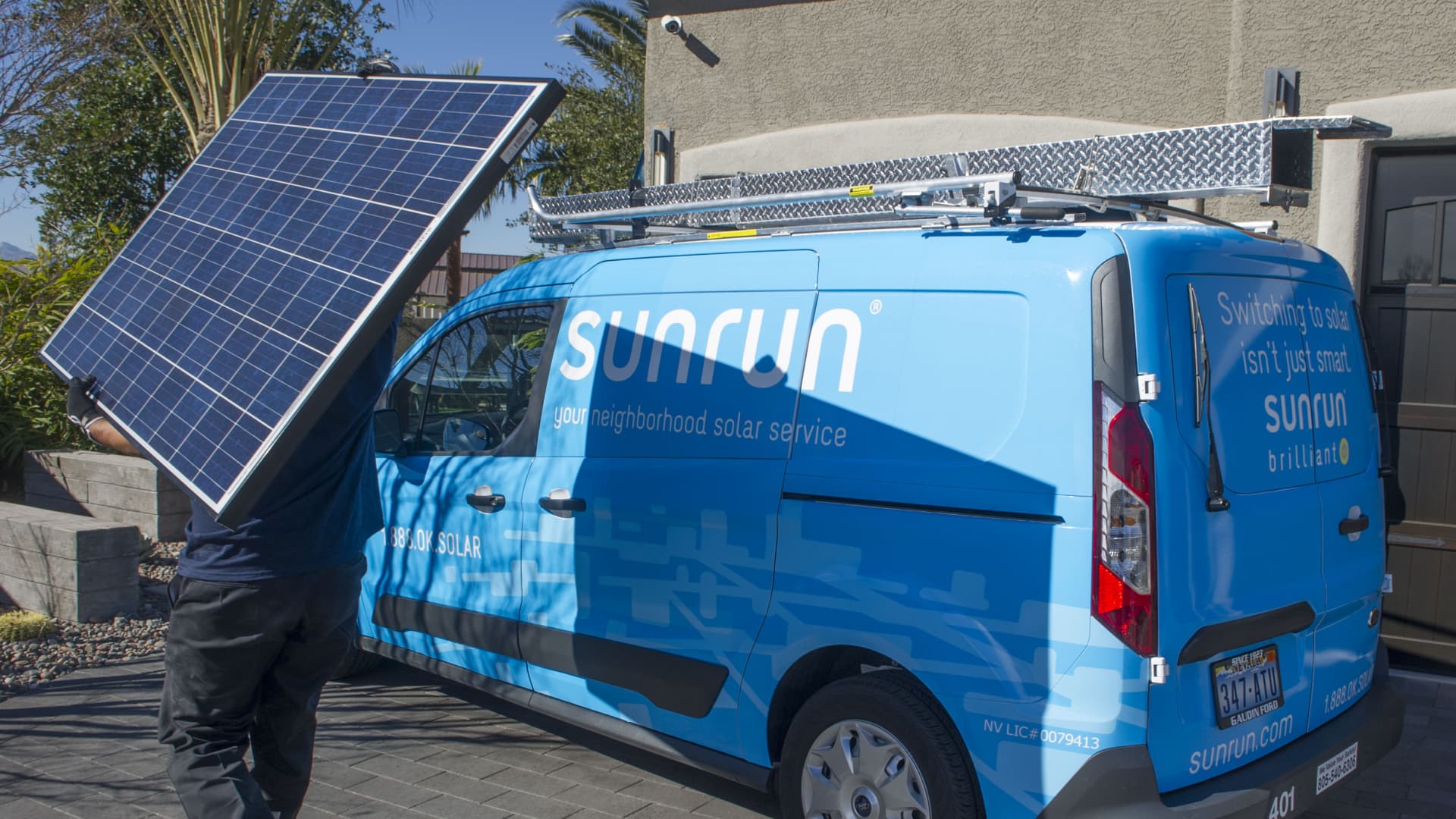Greenland's minister for business and mineral resources Naaja Nathanielsen speaks during an interview with AFP in her office in Nuuk, Greenland, on March 6, 2025.
Odd Andersen | Afp | Getty Images
Greenland has little interest in harnessing its massive resource potential to become a top mining country.
The world's largest island has been thrust into the geopolitical spotlight in recent months, with U.S. President Donald Trump repeatedly saying that Washington should control the autonomous Danish territory — even refusing to rule out the use of military or economic force.
Trump's pursuit of Greenland comes as mining executives describe the race for the Arctic island's largely untapped extractable resources as an "enormous opportunity." However, Greenland's harsh climate, remote landscape and lack of infrastructure have all been cited as barriers to the island's strategic potential.
Naaja Nathanielsen, Greenland's minister for business and mineral resources, told CNBC that exploiting some of the territory's highly prized minerals is "absolutely possible and viable," noting that several mining projects are already underway.
"We do have projects underway that I think are very promising: graphite, gold, copper, nickel, molybdenum and so on. Rare earths as well," Nathanielsen told CNBC's "Squawk Box Europe" on Friday.
"But for Greenland, we are not necessarily interested in becoming a really great mining country. We just really want 5 or 10 active mines at any given time," Nathanielsen said.
"We are a very small population so, for us, we don't need the entire country to be covered in mines. We are happy with managing a few and I think that is feasible," she added.
Greenland, which currently has just two active mines on the island, has long pitched itself as a Western alternative to China's near monopoly on rare earth elements.
Indeed, a 2023 survey by the Geological Survey of Denmark and Greenland (GEUS) found that 25 of the 34 minerals recognized as critical raw materials by the European Commission were found in Greenland.
These minerals include graphite, molybdenum and titanium, all of which are expected to play a key role in the pivot to more sustainable energy sources.
Mining operations
Earlier this week, mining development firm Critical Metals Corporation announced it had received a letter of interest from the Export-Import Bank of the United States for a loan worth up to $120 million to fund the firm's Tanbreez rare earths mine in southern Greenland.
Notably, the funding package marked the Trump administration's first overseas investment in a mining project.
In this aerial view melting icebergs crowd the Ilulissat Icefjord on July 16, 2024 near Ilulissat, Greenland.
Sean Gallup | Getty Images News | Getty Images
Greenland authorities also recently approved a 30-year mining permit to a Danish-French mining group to exploit anorthosite, a rock rich in aluminum, at a site in western Greenland.
Separately, Eldur Olafsson, CEO of Greenland-focused mining company Amaroq, described Greenland as "an amazing country" to operate in.
"The geology is such that Greenland has traveled around the world through a geological time and gone everywhere — which means that it has an exposure to most mineral resources," Olafsson told CNBC's "Europe Early Edition" on Thursday.
"It has a fantastic jurisdiction in relation to regulation. It is based on Nordic principles and law," he added.
A general view of a residential area of Nuuk, Greenland, on March 10, 2025, on the eve of a parliamentary election in Greenland, the autonomous Danish territory. Two days of storm and mild weather has ripped political posters of posts and melted snow in Greenland's capital.
Odd Andersen | Afp | Getty Images
Asked how the prospect of the U.S. purchasing Greenland could impact the firm's operations and outlook, Olafsson said Greenland's destiny is for Greenlanders to choose.
"In the end, I think Greenland will become most likely an independent state, supported by the Nordic countries and supported by the U.S., just like Iceland was," Olafsson said.
Learning from the past
Greenland's Nathanielsen said the territory has "very high" environmental, social and governance (ESG) standards, in part because of its previous issues with mining pollution.
"I think the people of Greenland really support the mining industry, which is quite kind of rare when you look at other jurisdictions. But they do so because they have faith in us having a high environmental standard and taking care of local communities," Nathanielsen said.
"And if we start to fold on that, we will also lose the people's support of this industry. For us it is really important. So, I think we have learned from the past," she added.

 3 hours ago
35
3 hours ago
35




























 English (US)
English (US)